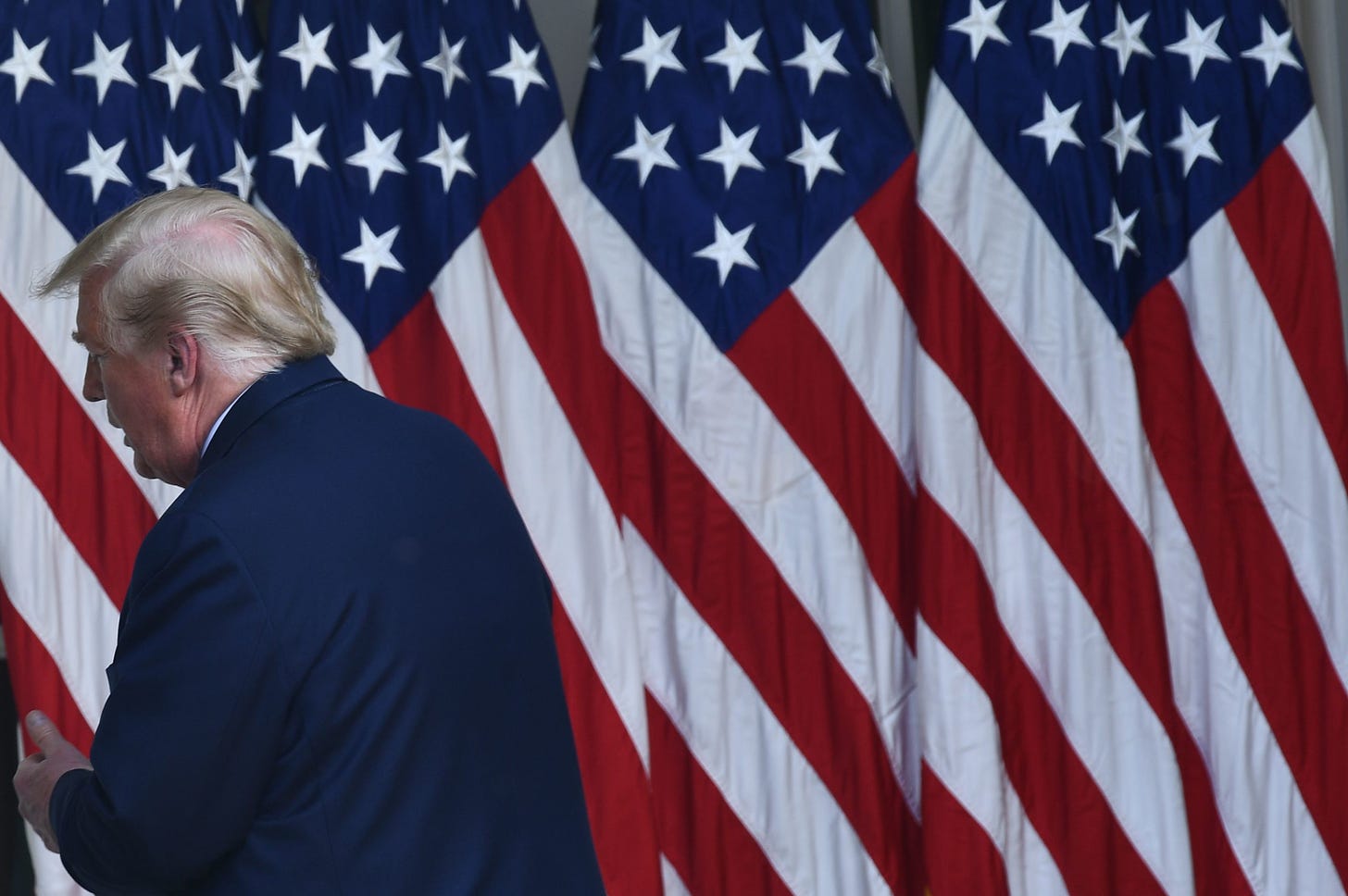Trump’s Executive Order on Social Media Grows the Administrative State
And it parallels Obama’s unilateral actions that conservatives decried.

For all their disagreements, President Trump’s supporters and his opponents agree on at least one thing: that the Trump administration has been committed to “deconstructing the administrative state.” This has been conventional wisdom on the pro-Trump right from the moment presidential adviser Steve Bannon announced it at the 2017 CPAC conference, and the president’s critics have taken it to be obviously true; if nothing else, that narrative certainly suits both sides’ arguments. But Trump’s latest executive order, asserting vast new regulatory powers over social media platforms, reminds us that the truth is actually very different.
While the Trump administration has done much in three years to reform, reduce, and modernize regulatory programs—the most recent example of which I applauded just last week—the fact remains that the administration isn’t “deconstructing” the administrative state. Quite the contrary: On the issues that President Trump cares about the most—immigration, trade, and now social media regulation—he has actually worked to grow the administrative state. And his administration’s efforts and innovations may become the precedents on which future administrations further build.
To be clear, the Trump administration’s regulatory reforms should not be understated, and they too may be significant precedents. Agency efforts to promote transparency in the public interest, including transparency for guidance documents, seem unlikely to be rolled back by the next administration. Even last week’s executive order’s provisions for “Fairness in Administrative Enforcement and Adjudication” could have long-lasting salutary effects: A future administration might repeal the order in part, but it would be surprising to see a White House renounce the order’s requirement of “prompt and fair” agency enforcement practices, or reject the provision that says penalties should be “proportionate, transparent, and imposed in adherence to consistent standards and only as authorized by law.” Nor should we understate the work that many agencies in the Trump administration have done to make their regulations and regulatory practices more efficient, transparent, and lawful.
But on President Trump’s two core policy commitments—immigration and trade—his administration has done much to empower the administrative state. On immigration, the administration has focused on spending more and regulating more. On trade, the administration’s policies significantly expand administrative power over American economic activity, at great cost—indeed, that’s the entire point.
And to those two longtime policy commitments, we can now add a third: President Trump’s goal of punishing social media companies for what he characterizes as unfair treatment of politically conservative viewpoints (such as his own). His new executive order, issued yesterday afternoon, directs the Commerce Secretary, via a Commerce Department agency, the National Telecommunications and Information Administration, to petition the FCC for a rulemaking to “clarify” that Congress’s 1996 grant of civil liability immunity to “interactive computer services” (in 47 U.S.C. § 230(c)(2)) does not cover social media companies whose editorial actions are “deceptive, pretextual, or inconsistent with a provider’s terms of service.” Such a withdrawal of immunity could have significant consequences, especially when the same executive order directs the Federal Trade Commission to deem some activities by social media platforms “unfair or deceptive acts or practices” under federal law, opening up the risk of liability.
This abrupt and unilateral policy maneuver calls to mind one of the most significant and controversial policy gambits of President Obama’s final years in office: his abrupt recalibration of immigration law, in the DACA and DAPA policies. At first, President Obama had sought legislative reforms for those aspects of immigration law, conceding that he had no power to unilaterally change immigration law; but when Congress did not enact the reforms he wanted, President Obama finally went ahead on his own. Now President Trump has taken a similar approach. After two years’ debate over whether Congress should amend Section 230’s legislative grant of immunity, the president has suddenly announced that he can achieve the same aims by simply reinterpreting the statute.
The resemblance doesn’t stop there. When one looks beyond the specific policies at issue, it is not hard to find significant continuities between the Trump administration and its predecessor, in terms of the administrative state. A year ago, one could see continuities between the Trump and Obama administrations in terms of their use of innovative executive orders and enforcement discretion for unilateral policymaking. Similarly, while the Trump administration’s resistance to opposite-party congressional oversight was broader than the Obama administration’s, the precedent for such an approach was noticeable from the start.
Perhaps President Trump’s latest radical policy innovation, based on dubious readings of federal law, will be blocked by federal courts—again echoing the fate of some of the key administrative policy initiatives of President Obama’s own last years in office.
But regardless of how long- or short-lived this particular social-media policy might turn out to be, its real legacy could be much more long-lasting. It is not hard to imagine a future Democratic president issuing an executive order or taking other administrative action to leverage the Telecommunications Act of 1996, federal consumer protection laws, or other federal laws or resources to force social media companies to more aggressively manage online content. Or, looking beyond social media companies altogether, it is not hard to imagine a future Democratic president taking President Trump’s approach and applying it to other issues important to that president.
Just as Democrats disagreed with President Trump’s immigration policy but saw great promise in his use of emergency powers as the means towards presidential ends, so too might the Democrats who criticize Trump’s particular social-media policy today see great promise in the tools Trump used to create it, in the years to come.









